Vietnam weighs up options in South China Sea dispute
VOV.VN - Vietnam has affirmed that it will choose neither the United States or China with regard to the ongoing dispute in the South China Sea, known locally as the East Sea, but will seek only to protect its own legitimate interests in the area.
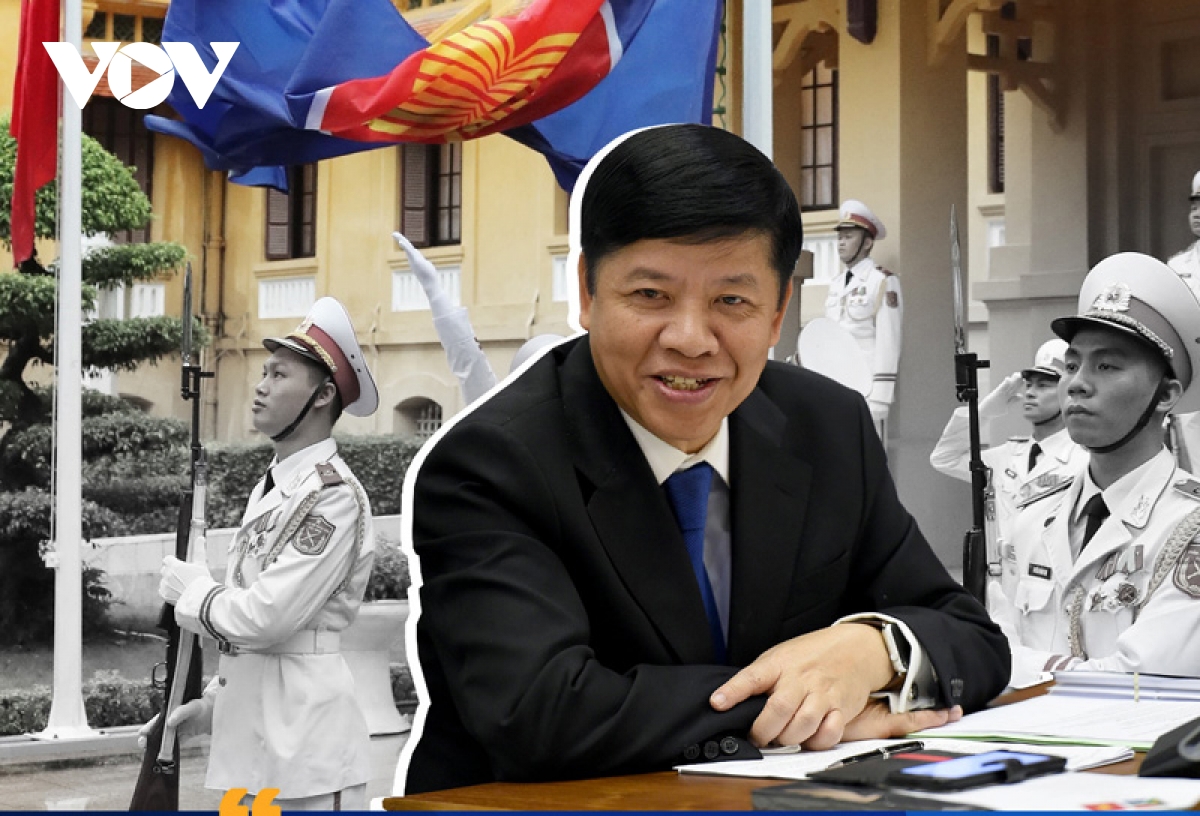
Ambassador Nguyen Quoc Cuong, former Vietnamese Deputy Minister of Foreign AffairsNguyen Quoc Cuong
In a recent interview granted to The Voice of Vietnam (VOV), Ambassador Nguyen Quoc Cuong, former Vietnamese Deputy Minister of Foreign Affairs, said the US’ changing position in the South China Sea should be considered as a factor in its policy towards China in the near future. According to Ambassador Cuong, the strategic competition between the US and China is growing in intensity and comprehensively across all fields, from politics and diplomacy to economics, science, and technology, along with security and defense, as well as hard and soft power.
The competition created between an incumbent power and a rising power, as considered by many international analysts, is set to be both long and fierce. This therefore has a far-reaching effect on both the regional and international situation, in addition to impacting small and medium-sized countries in the region, including Vietnam.
“ASEAN countries have clearly stated that they do not wish to take sides. That is a wise choice. The US also announced that it welcomed ASEAN’s stance,” said the Vietnamese diplomat.
“When I was the ambassador to the US, I met with many officials who said they were aware that Vietnam wants to maintain good relations with China and they did not intend or request Vietnam to choose the US side.”
“As far as I know, China has never officially asked Vietnam or ASEAN to choose sides, but always ‘reminded’ ASEAN to be wary of US intentions,” recalled Ambassador Cuong.
Amid this context the nation must choose the best policy for itself, to pick the US or China, or alternatively not to get involved in their dispute.
1. Vietnam chooses to protect national interests
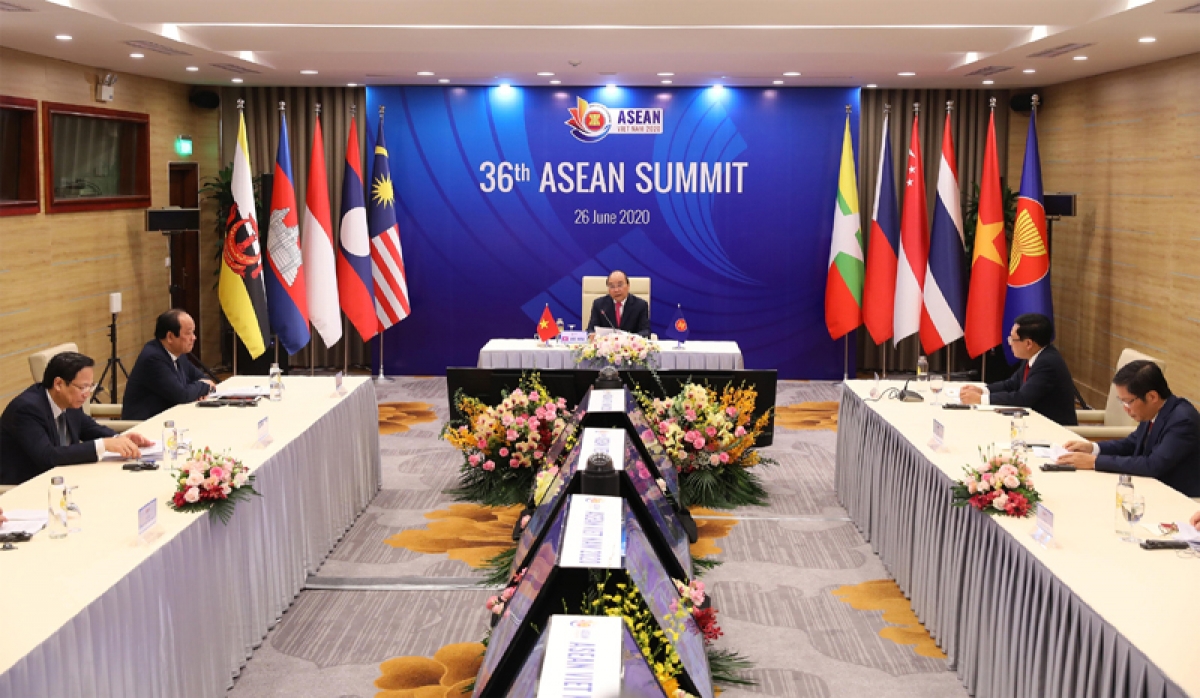
According to Ambassador Cuong, there is no doubt that the strategic competition between the US and China is a reality, stating, “whether you like it or not, the tit-for-tat war has been taking place in a fierce manner.”
“In such a context we cannot stand aside. We will certainly not choose sides. The right choice for Vietnam is for the ultimate interests of the nation, that is to firmly defend the independence, sovereignty, and territorial integrity of the country.”
Echoing the diplomat’s view, Ambassador Pham Quang Vinh, former Deputy Minister of Foreign Affairs, also said, “Apparently given the context we should not take any side, but fully observe international law, principles, and common interests of the region, including ASEAN and Vietnam. Vietnam and ASEAN want to maintain good relations with both the US and China because they are two very important partners economically, politically, and in terms of security. We definitely need these two partners.”
In Ambassador Vinh’s opinion, Vietnam enjoys positive factors such as righteousness and strength of national unity. It also shares a common view with the international community that it is important to maintain and consolidate peace, stability, co-operation, and development in the South China Sea, the wider region, and the world as a whole. For this reason, the country has always enjoyed the support and trust of the international community.
The international community has always appreciated Vietnam’s international role and position, as well as its positive and constructive contributions made in its role as the ASEAN Chair 2020, along with being a non-permanent member of the United Nations Security Council for the 2020 to 2021 term. Indeed, increasing numbers of foreign firms have chosen Vietnam as a safe and attractive destination for investment and business expansion.
Overall, in all circumstances, Vietnam persistently pursues the Party and State-chosen foreign policy of independence, self-reliance, peace, co-operation, development, multilateralisation, and persification of foreign relations, all whilst being active and proactive in integrating into the world. In addition to this, it also needs to be proactive and flexible in responding to each specific situation as a means of avoiding falling into a passive situation.
“That requires Vietnam’s intellect and bravery to be promoted to the fullest, and I believe we can do that. We have done so and will certainly do it in the near future,” emphasised Ambassador Cuong.
2. South China Sea to be on multilateral mechanisms
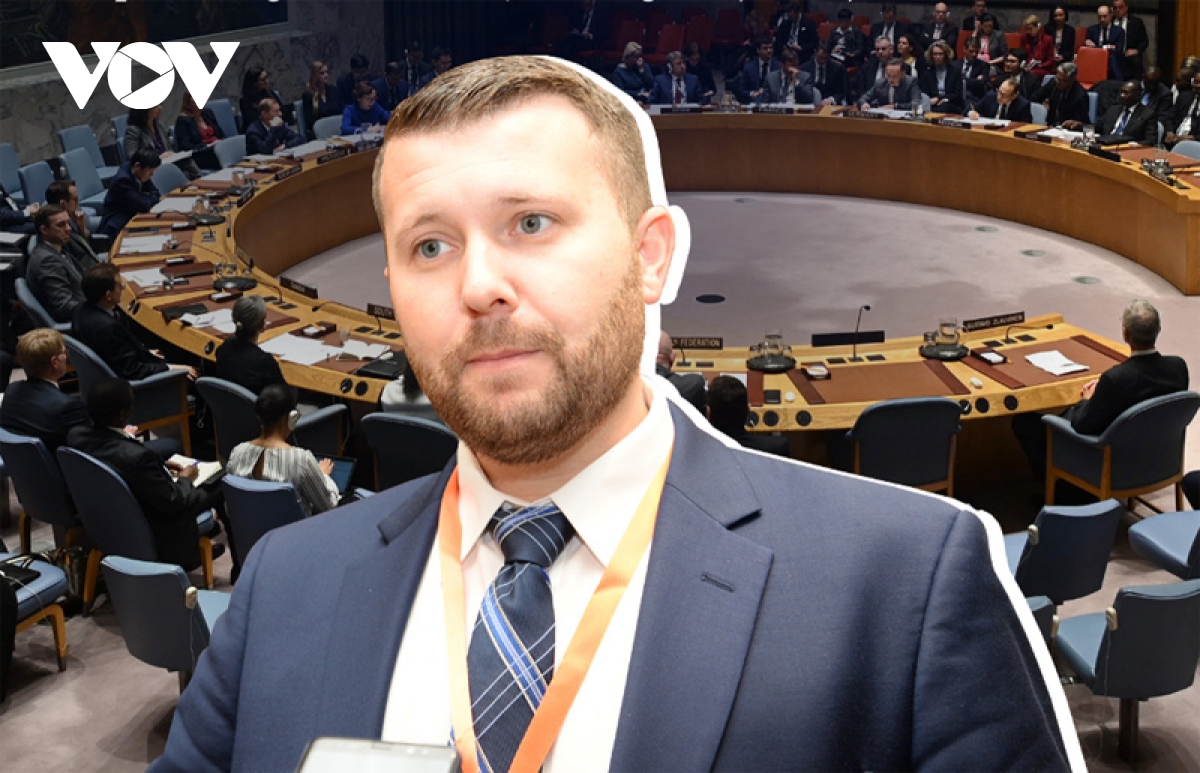
Gregory Poling, director of the Asia Maritime Transparency Initiative, suggests Vietnam should have a stronger voice at international forums
Vietnamese diplomacy is currently enjoying a special year, especially in terms of multilateral diplomacy as the country is taking on both the role of ASEAN Chair 2020 and a non-permanent member of the United Nations Security Council for the 2020 to 2021 term. Therefore, it has been advised to take advantage of these multilateral forums in an effort to put forward the South China Sea issue for discussion.
Gregory Poling, director of the Asia Maritime Transparency Initiative at the US-based Center for Strategic & International Studies, therefore suggests that Vietnam should have a stronger voice at international forums in a bid to garner support for its stance.
“Vietnam needs to speak up more forcefully for its interests in international forums and call on international partners to do the same. That means not just ASEAN meetings, but global institutions like the UN. The US cannot win this fight for the claimants. They must do it themselves with US backing. So, if Vietnam wants to hear the international community support its claims, it needs to ask them itself.”
Ambassador Cuong noted that if the South China Sea situation gets worse, threatening international peace and security, the UN Security Council (UNSC) will formally jump on it. Despite this, he reminded that any issue raised for discussion at the UNSC would require the consultation and agreement of all 15 UNSC members, which includes five veto-wielding powers, namely Russia, the US, China, the UK, and France, who have a decisive voice.
The election of Vietnam as a non-permanent member of the UNSC for the 2020-2021 term with a record high number of votes serves to demonstrate the international community’s trust in the country’s constructive contributions. This can therefore be viewed as an excellent chance for the country to take on a responsible role within the international community and promote the overall goal of creating a peaceful and stable environment for development. This will lead to reducing tensions in regions, seeking viable solutions to conflicts, and promoting consensus.
The UNSC membership also offers the country the chance to strengthen bilateral relations with other members, especially major partners, whilst promoting priorities in international law, and increasing the role of regional organisations, especially ASEAN.
Most notably, the country, as the rotating President of the UN Security Council in January, played host to a discussion on ASEAN-UN co-operation, in which the South China Sea issue was openly and frankly debated.
“This was the first time that the issue of peace and security in the East Sea has been raised at the United Nations Security Council, and I think this is a concrete and constructive contribution of Vietnam,” said Ambassador Cuong. “Of course, it depends on what happens, but we must stick to this mechanism to protect our legitimate rights and interests under international law.”
3. A legal solution in the East Sea
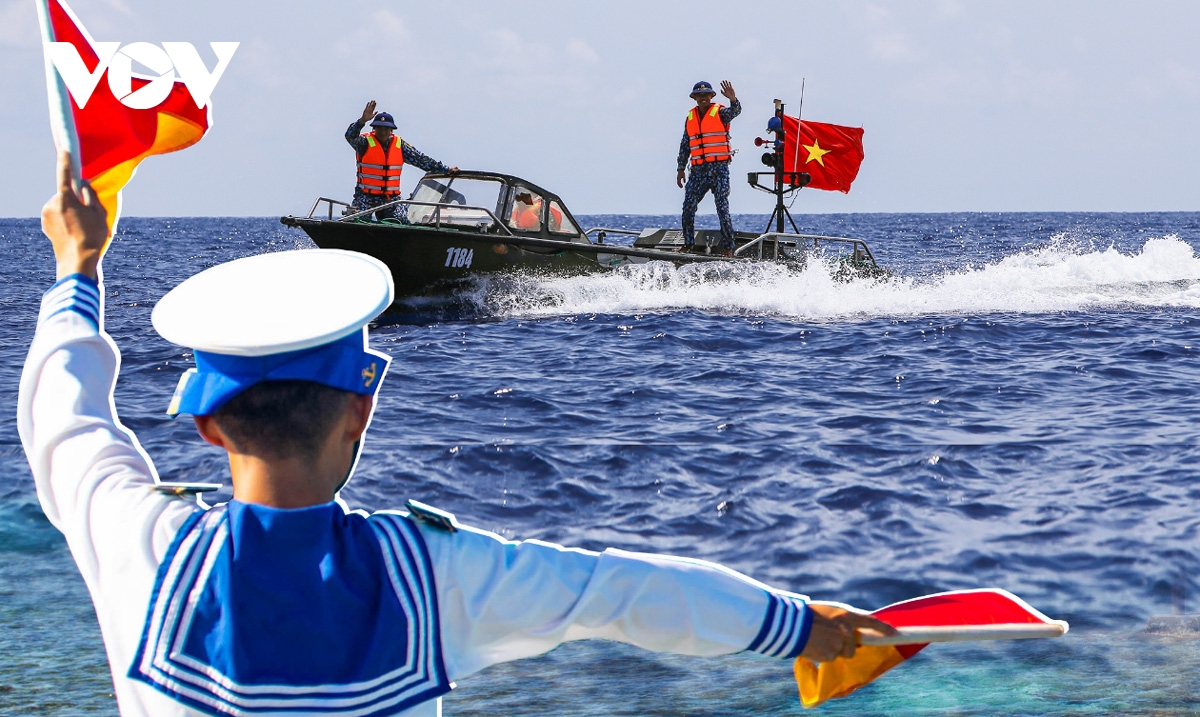
Defending national sovereignty is Vietnamese navy men's top task.
When China took aggressive actions which violated Vietnamese sovereignty in the South China Sea, Vietnam was advised to take China to the international court in a similar manner to the Philippines.
“In my opinion, it is an option and we cannot rule it out. We need to be well prepared for all circumstances, including the option to file a lawsuit against China. But when and how to lodge a petition should be carefully taken into account with a cool head so that if we do, we must do so with the highest efficiency."
There is no denying that an impartial court ruling will set a precedent for countries to pursue a legal solution, all whilst one party will attempt to flex its muscles instead of providing convincing evidence to prove its claims are grounded in legality. Despite this, the legal solution should only be considered as a last resort when negotiating parties fail to break the deadlock.
One aspect to consider is that when the court issues a ruling unfavourable to China, they will likely refuse to observe it, therefore not bringing about the desired effect. This is not to mention that justice can be influenced by various forces who have their own motivations.
Ambassador, Assoc. Prof. & Dr. Nguyen Hong Thao frankly pointed out that one of the challenges in the South China Sea is the issue of selecting competent judges that are capable of possessing an objective view in relation to international jurisdictions.
According to Ambassador Thao, the selection of such judges for international tribunals is a specific provision in terms of the regulations of each international jurisdiction agency such as the International Court of Justice (ICJ) or the International Tribunal for the Law of the Sea (ITLOS). It also proves to be a challenge when some countries lobby in an effort to bring their own people into the organisation. In principle, judges work objectively and are not dependent on the politics of the country in which they bear citizenship.
Ambassador Thao recalled a case in 1986 between Nicaragua and the US, during which a US judge voted against the US’ actions as they ran counter to international law. In contrast, a Chinese judge in the ITLOS gave an analysis which defended China’s “nine-dash line” claims.
“Of course, we cannot say that he made a mistake without proof, as all arguments are respected until final conclusions are reached. The way several Chinese judges and representatives at international organisations such as the World Health Organisation behaved has made the US a pioneer in its campaign to prevent China from bringing its people into international organisations.”
“Voting results depend on many different factors, from the quality of the candidate to the attitude and lobbying efforts of a candidate country. The biggest challenge is how countries can produce an objective and honest stand about the candidate from a scientific, as opposed to political, point of view”, stated Ambassador Thao.
4. We need a warm heart and a cool head
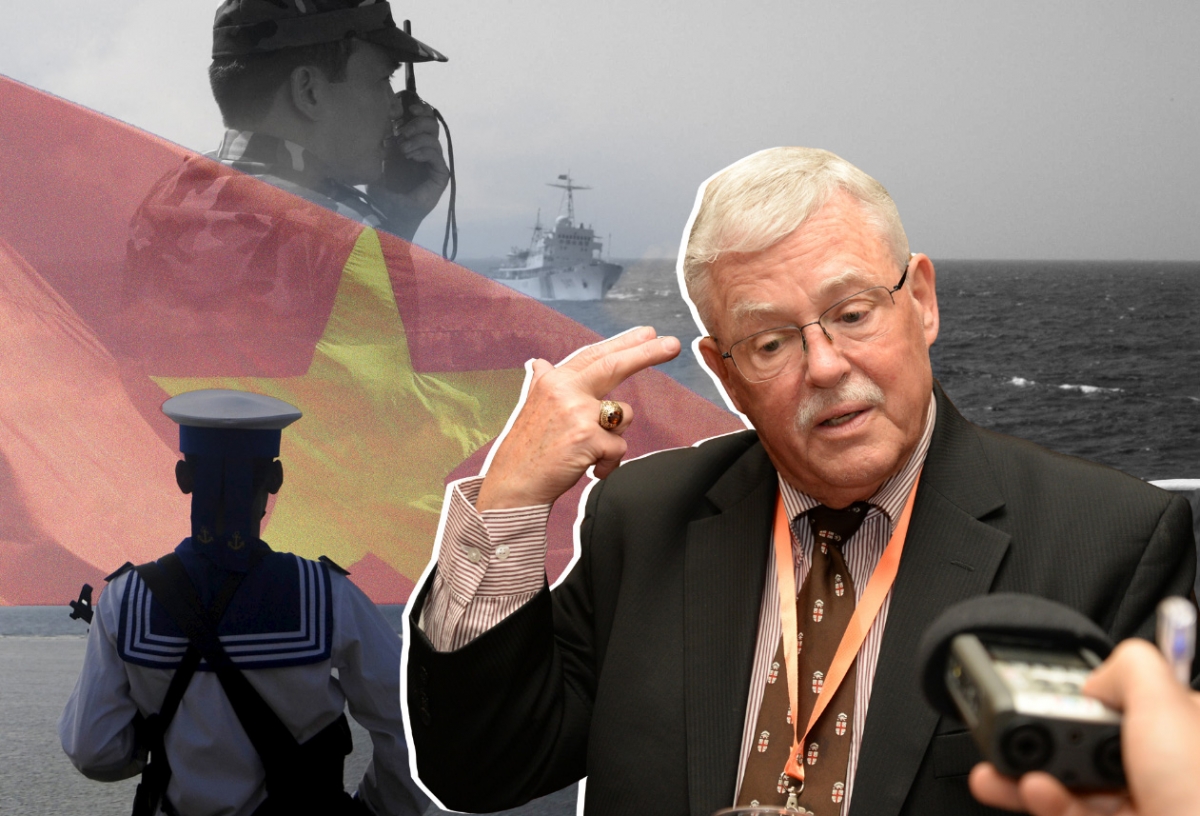
Prof. Carl Thayer says Vietnam must only respond to China's provocation proportionately.
In order to deal with aggressive Chinese actions in the South China Sea, Prof. Carl Thayer, Southeast Asia regional specialist at the Australian Defence Force Academy, has suggested that, “Vietnam must constantly assess what actions China will carry out and how best to respond to these provocations. China’s ‘grey area’ tactics are well known, such as deploying China Coast Guard ships, maritime militia trawlers, and fishing craft to harass oil and gas exploration by a littoral state. Vietnam must only respond to a provocation proportionately.”
According to him Prof. Thayer, “Vietnam should hold discussions with other littoral states to exchange experiences and work out common responses. Vietnam must always protest violations of its sovereignty and use international opinion to support its case.”
Furthermore, Ambassador Cuong suggested that the country should keep a warm heart and a cool head when handling the ongoing South China Sea issue.
“Keeping a warm heart means sticking to the unshakable determination of the whole Party and our people to firmly defend the independence, sovereignty, and territorial integrity of the nation,” said the Vietnamese diplomat. “In the Declaration of Independence dated September 2, 1945, President Ho Chi Minh formally declared to the world: ‘Vietnam has the right to be a free and independent country - and in fact is so already. The entire Vietnamese people are determined to mobilize all their physical and mental strength, to sacrifice their lives and property in order to safeguard their independence and liberty’ The world also understands very well the determination and iron will of the Vietnamese people.”
In his words, “Keeping a cool head means being calm and alert to handle the problem in the best way for the nation and not to let the situation get out of hand.”
Ambassador Cuong also affirmed that with regard to the South China Sea issue, the nation’s greatest interests are maintaining peace, stability, co-operation, and development. Whilst simultaneously being persistent and determined to protect sovereignty and sovereign rights in the South China Sea.
“I think Vietnam has so far sustained these two interests quite well. If we fail to maintain peace and stability, we cannot focus our resources on national socio-economic development as in the past, and foreign businesses cannot choose to invest and expand operation in a country that is on the brink of war.”
“Meanwhile, through various means we still maintain friendly relations with China and other countries in the region, while firmly defending the country’s sea and islands.”
“At the same time, we are continuing to carry out sea-based economic activities in areas under our sovereignty in the East Sea in accordance with international law, although it is now more challenging than before,” admitted Ambassador Cuong.
Related News

Vietnam ready to export first batch of sweet potatoes to China
13:57 | 06/04/2023 Anti-Smuggling

Australian Governor-General wraps up State visit to Vietnam
13:53 | 06/04/2023 Headlines

Vietnam a potential market for French businesses, investors: experts
16:12 | 05/04/2023 Import-Export

Vietnam active at UN Human Rights Council’s 52nd session
16:11 | 05/04/2023 Headlines
Latest News

Private sector remains driving force for economy
14:11 | 03/04/2023 Headlines

State visit to Vietnam by Australian Governor-General to deepen the two’s goodwill, trust: expert
14:10 | 03/04/2023 Headlines

Vietnam"s economy to grow by 6.6% this year: OECD
17:45 | 02/04/2023 Headlines

Bright outlook for Vietnamese tourism in new situation
16:52 | 02/04/2023 Headlines
More News

Vietnam, US hold 12th Political, Security, Defence Dialogue
20:25 | 01/04/2023 Headlines

Vietnam calls for comprehensive, all-society approach to waste management
14:32 | 31/03/2023 Headlines

Many factors support foreign capital flow
13:40 | 30/03/2023 Headlines

Foreign SMEs pour capital into Vietnam
13:37 | 30/03/2023 Headlines

Leaders of aviation firms to be disciplined if employees committed wrongdoings
15:38 | 29/03/2023 Headlines

Vietnam - Lao joint border patrol held
15:31 | 29/03/2023 Headlines

CPI increases about 4.2% in first quarter
14:27 | 28/03/2023 Headlines

PM orders close coordination to remove obstables to property market
14:20 | 28/03/2023 Headlines

PM chairs Government meeting on law building
15:46 | 27/03/2023 Headlines
Your care
The system has not recorded your reading habits.
Please Login/Register so that the system can provide articles according to your reading needs.

Australian Governor-General wraps up State visit to Vietnam
13:53 | 06/04/2023 Headlines

Vietnam active at UN Human Rights Council’s 52nd session
16:11 | 05/04/2023 Headlines

Vietnam commits to building prosperous, fair, healthy Mekong River basin: PM
16:09 | 05/04/2023 Headlines

Việt Nam, US hold 12th political, security, defence dialogue
14:15 | 03/04/2023 Headlines

Private sector remains driving force for economy
14:11 | 03/04/2023 Headlines
